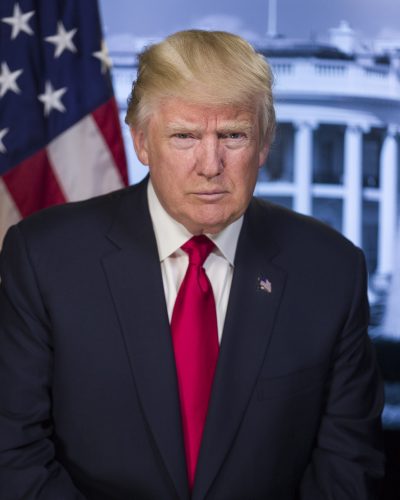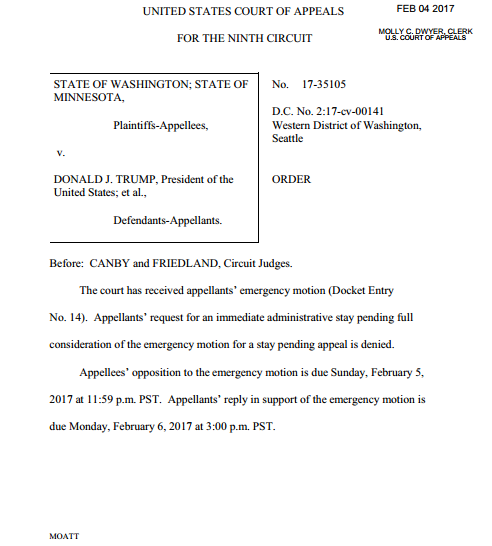Final decision expected on Monday.

US District Court for the Western District of Washington has halted President Trump’s directions to impose an immediate travel ban on nationals from seven countries – Iran, Iraq, Libya, Somalia, Syria and Yemen. This means that the non-immigrant travelers from these countries can travel to the US unrestricted, for the time being.
The court order read:
The court is expected to announce the final decision on Monday, after listening to the arguments for the temporary suspension on travelers.
In response, Donald Trump tweeted:
I have instructed Homeland Security to check people coming into our country VERY CAREFULLY. The courts are making the job very difficult!
— Donald J. Trump (@realDonaldTrump) February 5, 2017
Specifying the purpose for the temporary ban, the Executive Order said that it is necessary to protect the US borders from foreign nationals who have a history of terrorist activities. It said that the countries with disturbed environs can harm US. It directed a temporary 90-day ban for individuals from seven countries. These countries, shortlisted by Congress or the Executive Branch, were identified as being associated with a heightened risk of terrorism. In addition, the Order directed a 120-day suspension of the U.S. Refugee Admissions Program. Though for the Syrian nationals no specific period for the ban was mentioned.
The Executive Order, titled: Protecting the Nation from Foreign Terrorist Entry Into the United States, was signed on January 27, 2017.
Excerpts from Trump’s Order read:
Numerous foreign-born individuals have been convicted or implicated in terrorism-related crimes since September 11, 2001, including foreign nationals who entered the United States after receiving visitor, student, or employment visas, or who entered through the United States refugee resettlement program. Deteriorating conditions in certain countries due to war, strife, disaster, and civil unrest increase the likelihood that terrorists will use any means possible to enter the United States. The United States must be vigilant during the visa-issuance process to ensure that those approved for admission do not intend to harm Americans and that they have no ties to terrorism.
The order, however, clarified that foreign nationals traveling on diplomatic visas, North Atlantic Treaty Organization visas, C-2 visas for travel to the United Nations, and G-1, G-2, and G-3, and G-4 visas will not be affected by the order.
On visa interviews, the order read that the Visa Interview Waiver Program should be immediately suspended and all non-immigrant visa aspirants should undergo an in-person interview.
It is pertinent to mention that the Executive Order does not categorically bans individuals from particular faith. Though, the countries listed in the Order are predominantly Muslim. The Order states that the Secretary of Homeland Security, in consultation with the Secretary of State and the Director of National Intelligence, shall submit a report and if any nation does not provide the necessary information, that nation should be included in the list.
In its response, the district court mentioned that an immediate ban would do an irreparable damage and that the alleged risks in the Executive Order was speculative.
The Executive Order, however, has come under criticism from several sections in and outside the US. The American Bazaar reported earlier that several Congressman and community leaders have come out in support against these directions, calling them unjust and unconstitutional.
Indian American Republican Shalabh Kumar, talking to the news media said earlier that Trump’s Order would not adversely affect Indian H-1B applicants or travelers. And that the fears are baseless.



